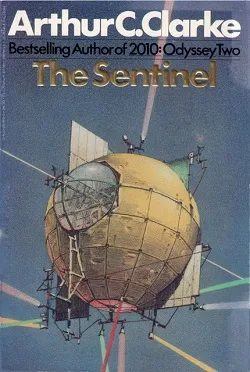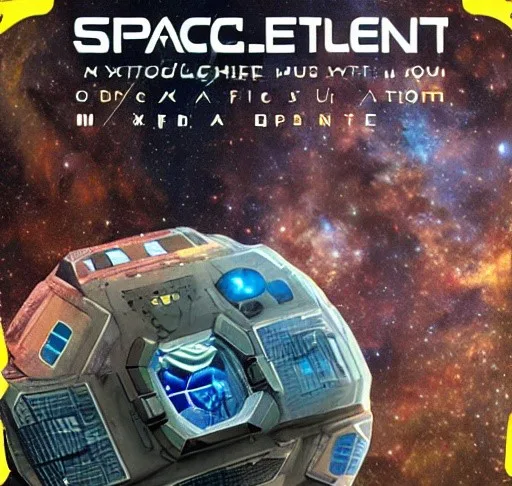One of the things that makes Clarke's stories so compelling is his ability to blend hard science with compelling narrative. Whether he is writing about the exploration of space or the search for extraterrestrial life, Clarke always grounds his stories in real scientific principles. But he also adds his own unique twists and imaginative flourishes, creating a sense of wonder and excitement that is unmatched in the world of science fiction.
Another hallmark of Clarke's short stories is their sense of scale. Whether he is writing about the smallest subatomic particle or the vastness of the universe, Clarke always manages to convey a sense of awe and wonder that leaves readers breathless. His stories are not just about scientific discoveries, but about the human spirit and our place in the cosmos.
Perhaps most impressive of all, however, is the sheer variety of Clarke's stories. From the dystopian visions of "The Nine Billion Names of God" to the exploration of strange new worlds in "Jupiter V," Clarke's short stories span the full spectrum of science fiction, showcasing his incredible range and versatility as a writer.
Ultimately, Arthur C. Clarke's short stories are a testament to the power of the human imagination. Through his writing, he inspired generations of readers to look to the stars and dream of what might be possible.
Arthur C. Clarke is widely regarded as one of the greatest science fiction writers of all time. Over the course of his career, he wrote dozens of short stories that explored themes of technology, space travel, and the human condition.

Here are 10 of his best short stories, along with a brief description of each.
"The Sentinel" (1951, published in 10 Story Fantasy) "The Sentinel" is the story that inspired Stanley Kubrick's film, 2001: A Space Odyssey. In the story, an alien artifact is discovered on the moon that appears to be a warning beacon left behind by an advanced alien race.
"The Nine Billion Names of God" (1953, published in Star Science Fiction Stories No. 1) In this story, a group of Tibetan monks hires two Westerners to help them compile a list of all the possible names of God. When the list is complete, they believe it will trigger the end of the universe.
"The Star" (1955, published in Infinity Science Fiction) "The Star" is a story about a group of space explorers who discover that a distant star has gone supernova, wiping out an entire civilization that lived nearby. The story explores themes of faith and the existential crisis that arises when we confront the vastness of the universe.
"The City and the Stars" (1956, published in Startling Stories) In this story, humanity has retreated into a single city, called Diaspar, that is controlled by an all-knowing computer. The story follows a young man named Alvin as he discovers the truth about his world and sets out to explore the universe beyond.
"The Deep Range" (1957, published in Playboy) "The Deep Range" is a story about a former astronaut who takes a job as a deep-sea farmer. When he encounters a giant sea creature that has been hunted to the brink of extinction, he must decide whether to protect it or turn a blind eye to its destruction.
"A Meeting with Medusa" (1971, published in Playboy) In this story, a wheelchair-bound astronaut named Howard Falcon is recruited to lead an expedition to explore Jupiter's atmosphere. There, he discovers a race of creatures that live in the planet's toxic clouds.
"The Wind from the Sun" (1972, published in Playboy) "The Wind from the Sun" is a story about a solar sail race between Earth and Mars. The story explores the challenges of interplanetary travel and the tension that arises when human ambition clashes with scientific progress.
"The Hammer of God" (1992, published in Far Horizons) "The Hammer of God" is a story about a giant asteroid that is on a collision course with Earth. A team of astronauts is sent to try to deflect the asteroid and save humanity from destruction.
"Jupiter V" (1952, published in If Magazine) In "Jupiter V," a team of astronauts travels to one of Jupiter's moons to investigate strange readings coming from the surface. What they discover is a shocking secret that changes the course of human history. The story was inspired by the real-life discovery of the Jovian magnetosphere, a magnetic field surrounding Jupiter that was first detected in the 1950s.
"The Parasite" (1953, published in Science Fiction Adventures) "The Parasite" is a story about an alien organism that lands on Earth and begins to infiltrate human society. As the creature spreads, it becomes clear that its intentions are far from benevolent. The story was inspired by real-life fears of alien invasion that were prevalent during the 1950s.
"The Other Side of the Sky" (1957, published in Infinity Science Fiction) "The Other Side of the Sky" is a collection of short stories set in space. Each story explores the challenges and dangers of space travel, drawing on Clarke's experiences as a radar instructor during World War II. The stories are based on real scientific principles, but Clarke adds his own imaginative twists to create a sense of wonder and excitement.
"The Light of Darkness" (1967, published in New Worlds) "The Light of Darkness" is a story about a group of astronauts who are sent to explore a mysterious planet that emits a strange energy. When they arrive, they discover that the planet is inhabited by a strange, intelligent race that challenges their understanding of the universe. The story was inspired by Clarke's fascination with the concept of dark matter, a hypothetical form of matter that does not emit or reflect light.
In conclusion, Arthur C. Clarke's short stories are among the best in the science fiction genre. His works explore deep philosophical themes while still managing to be entertaining and thought-provoking. If you are a fan of science fiction, you owe it to yourself to check out The Collected Stories.
"The Other Side of the Sky" (1957, published in Infinity Science Fiction) "The Other Side of the Sky" is a collection of short stories set in space. Each story explores the challenges and dangers of space travel, drawing on Clarke's experiences as a radar instructor during World War II. The stories are based on real scientific principles, but Clarke adds his own imaginative twists to create a sense of wonder and excitement.
"The Light of Darkness" (1967, published in New Worlds) "The Light of Darkness" is a story about a group of astronauts who are sent to explore a mysterious planet that emits a strange energy. When they arrive, they discover that the planet is inhabited by a strange, intelligent race that challenges their understanding of the universe. The story was inspired by Clarke's fascination with the concept of dark matter, a hypothetical form of matter that does not emit or reflect light.
In conclusion, Arthur C. Clarke's short stories are among the best in the science fiction genre. His works explore deep philosophical themes while still managing to be entertaining and thought-provoking. If you are a fan of science fiction, you owe it to yourself to check out The Collected Stories.
















